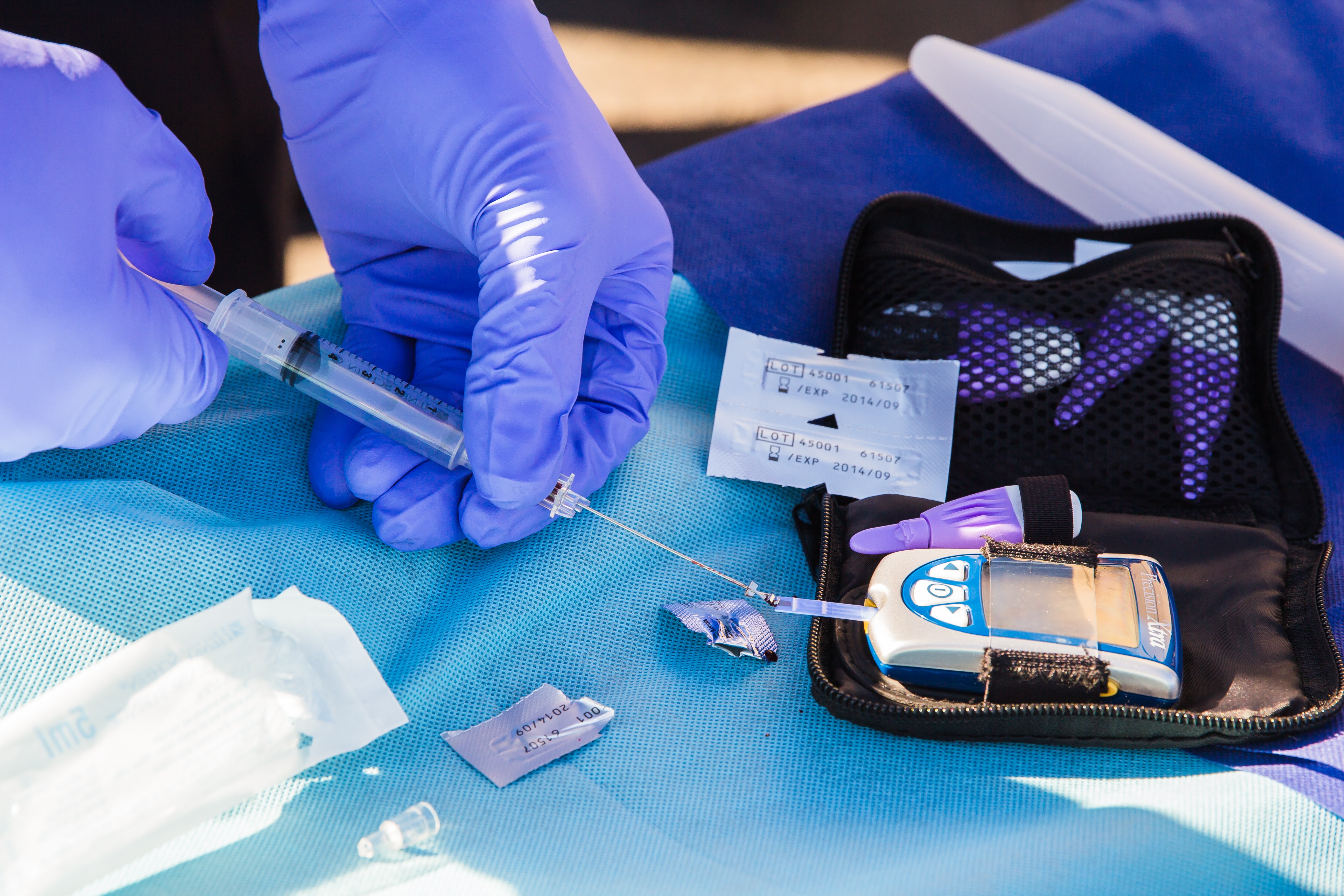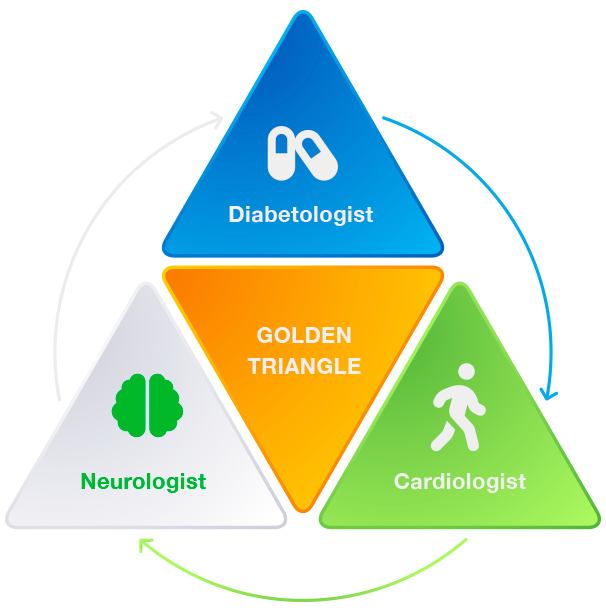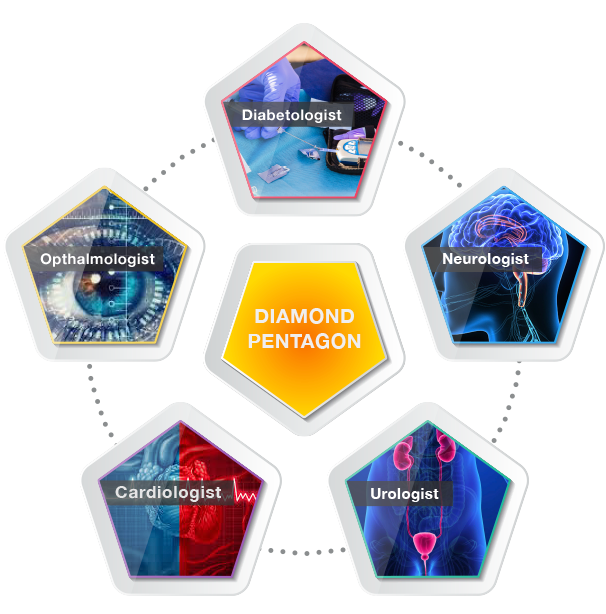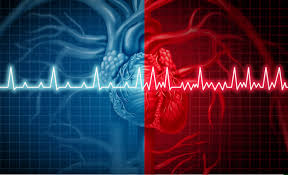
Loading...

At City Sugar Clinic we mainly focus on Diabetes and endocrinology diagnosis, treatment and long-term care, needs of people living with diabetes and hormonal disorders. We help you to understand your condition and apply groundbreaking research and education to prevent further illness and complications.
Our Endocrinology physicians, nurses and staff give a personal approach to care. Each treatment program is tailored to your individual needs. Our team works closely with physicians and surgeons of many medical specialties to coordinate your care and treatment. Every step of the way, your referring physician is part of the team and also helps us to coordinate your care.
get in touchThese are the special initiative taken by CITY SUGAR CLINIC where we are bringing in a special concept of GOLDEN TRIANGLE FOR DIABETES and DIAMOND PENTAGON FOR DIABTES. This is a unique concept where we screen Diabetic patient for present health status in which we take opinion from different super specialist and once we find out any complication and its status our next plan will be to prevent that complication progression.

Golden triangle for diabetes:- Here in this we will do the basic blood tests for diabetes ,ecg,echocadiography,mono-filament test,biothesiometre test ,peripheral vascular doppler and opinion will be taken from diabetologist, neurologist ,cardiologist .in this checkup after all the tests and opinion from all super speciality doctors we will decide a persenalised plan of action to prevent the complications due to diabetes.
Diamond pentagon for diabetes:- In this perticular process we will screen status of heart, nerves, kidney, eyes along with diabetic status and the opinion of opthalmologist, diabetologist, neurologist, cardiologist and urologist will be taken.






The American Diabetes Association recommends a blood glucose range of 80-130 before meals and less than 180 about 2 hours after a meal. This range should place your A1c under 7.
A Hemoglobin A1c is a 2-3 month average of your blood sugars. This result gives you a good idea of how well your diabetes is being managed/controlled. The American Diabetes Association recommends an A1c of less than 7 to keep the risk of complications low.
You can eat just about anything you want. It is about knowing proper portion sizes and how much you are putting on your plate. A dietitian can help you learn to count carbohydrates and with meal planning that is specific for you.
it is very important to keep your blood sugar level under control. When your blood sugar level is high, it can cause damage in your veins and arteries. This damage could lead to complications later such as heart attacks, strokes, kidney disease, neuropathies, vision problems, etc.
Fruits, starchy vegetables, milk, yogurt, rice, cereals, bread and other grains all have carbs and give you important nutrients. Many snack foods, such as pretzels, chips and popcorn, have carbs. Sweets, including regular soda, cakes, candy and cookies, also contain carbohydrates. Be sure to check the nutrition label on each food item to determine carbohyrdate content.
Carbohydrates are an important part of a healthy diet. With diabetes, watching portion sizes and getting most of your carbs from fruits, vegetables, whole grains and low fat milk and yogurt is key. Besides counting carbs, people with diabetes can also benefit from eating lower fat, high fiber foods and just enough calories to maintain a healthy weight.
Sugar free foods can be part of a healthy meal plan in small amounts. Keep in mind though that some of these foods still have carbs (in the form of other sweeteners such as sorbitol, isomalt, and mannitol) and may affect your blood glucose levels. Many sugar free foods have calories and carbohydrates and lots of fat. Make sure you read the nutrition labels.